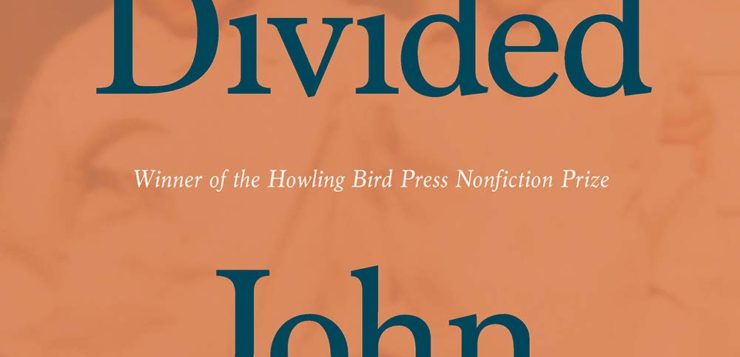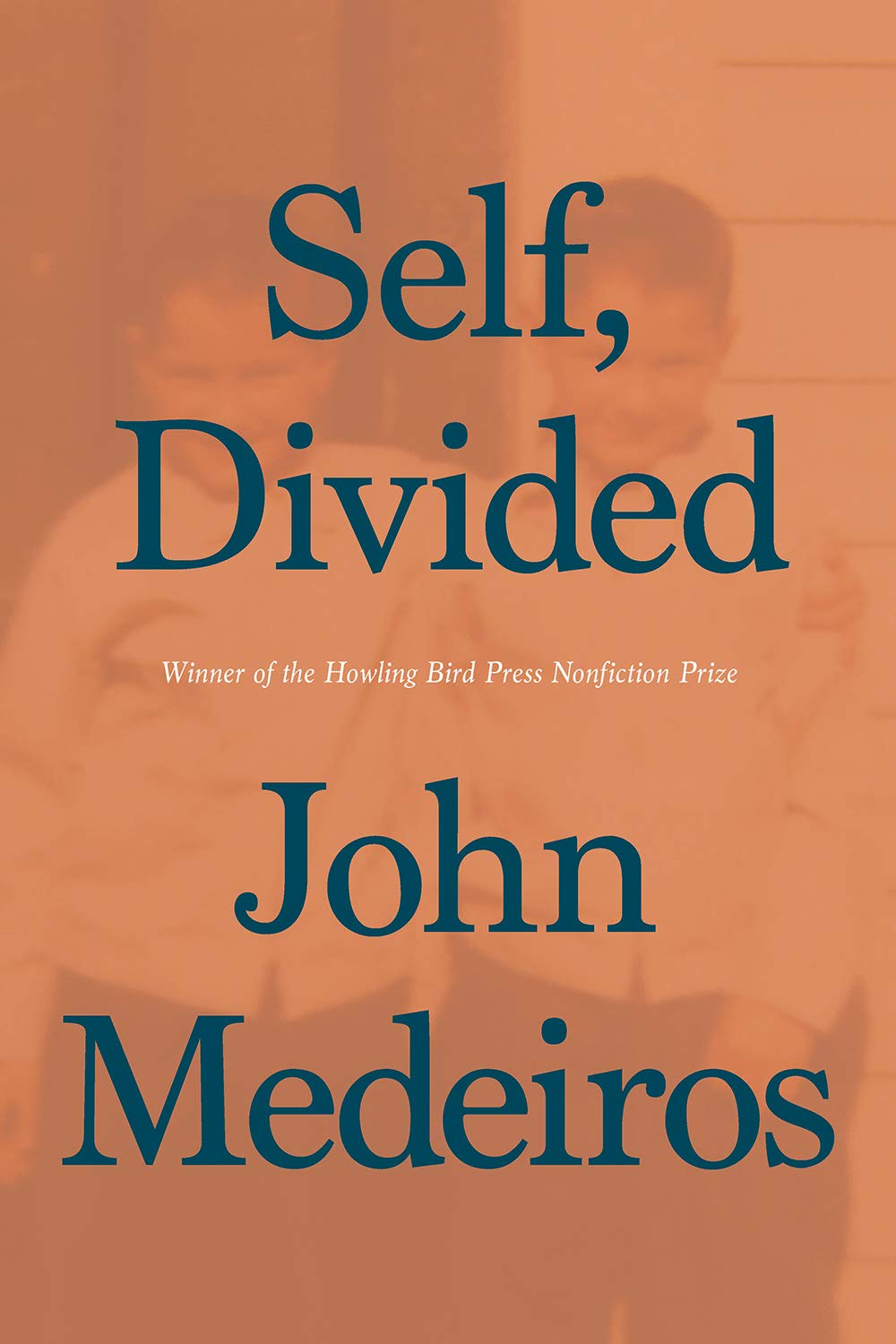IN THE ANNALS of Western literature, where love stories—between romantic couples, between parents and children, even between friends—abound, sibling love is notably underrepresented. Why this is so has long perplexed me. Sibling relationships can be just as charged, strife-ridden, nourishing, broken, and enduring as any other.
John Medeiros’ Self, Divided stands out as a bold exception. The memoir narrates a passionate, tense, and enduring love between Medeiros and his identical twin Bobby.
Another narrative rumbles alongside this family drama. The memoir opens at the National Institutes of Health, where the brothers are participating in a gene therapy study for identical twins who are serodiscordant, with one HIV-positive, the other HIV-negative. After years of strained separation, John’s illness touches an unbroken cord between them. When asked, Bobby doesn’t hesitate to help. While their part in the study proves anticlimactic, the reunion is deeply moving. Love sustained across difference is powerful indeed.
Medeiros is primarily a poet, and he brings a poet’s freedom with form to these pages, using wide columns to signify narratives shared by the twins and narrow columns for his personal story, launching into one-sentence romps on how language shapes identity, philosophizing about how memories may be constant while our interpretation can change. He turns to poetry when prose is inadequate. He prays the artist’s prayer, finding “beauty in the things around us, while at the same time revering the divine power behind it.” This playfulness with content and form never calls attention to itself. Rather than sticking within the conventional boundaries of memoir, Medeiros ranges widely, using any tool at hand to explore the mysteries of brotherly love.
Medeiros’s coming out story, while painful, is eclipsed by the more fundamental and complex struggle to locate his identity in relation to his identical twin. The personal question “Am I separate or am I connected?” first plays out in a lifetime of tension between the twins and then leaps into the public domain, becoming a human inquiry. “Perhaps identical twins are placed on this earth as a simple reminder that there is no such thing as an individual identity, since we are all a part of someone else’s,” Medeiros speculates. The gene therapy study raises fascinating questions about similarity and difference, proving the first by confirming their identical genes, ensuring the second by transplanting Bobby’s genes into John. Identity for Medeiros is impossible to pin down. In an era of identity politics, this memoir’s embrace of ambiguity is refreshing.
In the end, Medeiros’ story lands on a paradox. We know ourselves to be both unique individuals and utterly interconnected. Who better than identical twins to embody this? Who better than a poet to offer us this truth, and a gay poet at that? Affection and tenderness plunge Self, Divided into the realm of spiritual memoir, where love is the source of meaning.
____________________________________________________
Elizabeth Jarrett Andrew is a writer whose books include Writing the Sacred Journey and Swinging on The Garden Gate: A Spiritual Memoir.







